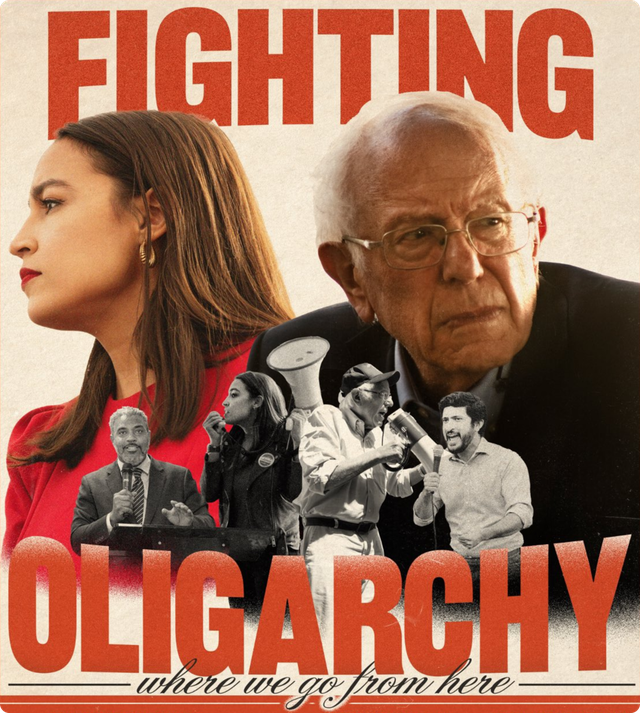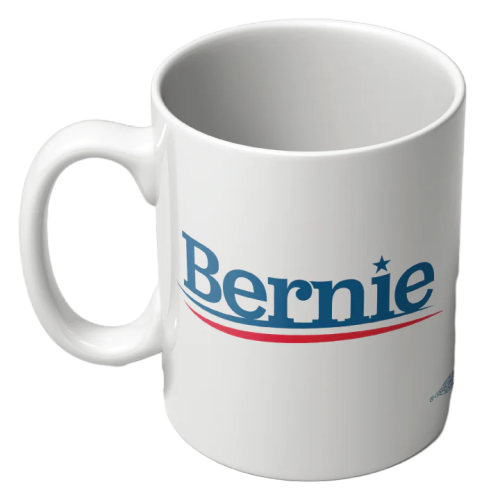Not me. Us.
Bernie is counting on all of us to continue fighting for our progressive agenda. There is only one way we will transform this country – and that is together.
Add your name to tell Bernie you're in.
By providing my phone number, I consent to receive periodic text message alerts from Bernie Sanders and his affiliated campaigns, including Friends of Bernie Sanders. Friends of Bernie Sanders will never charge for these updates, but carrier message & data rates may apply. Text STOP to 67760 to stop receiving messages. Text HELP to 67760 for more information. Terms & Conditions
Join us on the Fighting Oligarchy Tour.
Find an event near you →▸ Watch

We Asked Voters in a Republican Wisconsin District Why They Came to a Bernie Rally
3 months ago

Elon Musk: World’s First Trillionaire
3 months ago

No More Military Aid to Israel.
4 months ago

Trump Won’t Release the Epstein Files.
5 months ago

The Establishment is Scared of Zohran.
6 months ago

This is the worst piece of legislation in modern American history.
6 months ago

I Sat Down with Flagrant.
7 months ago

Our Political System is Corrupt.
8 months ago

No More Red State vs. Blue State Nonsense.
8 months ago

Yes, we are scaring the hell out of Elon Musk and Donald Trump.
8 months ago

Not me, us.
9 months ago

The American people are ready to fight.
9 months ago

34,000 People. Biggest Political Rally in Denver Since 2008.
9 months ago

Join us on the Fighting Oligarchy Tour
Over the course of the next few weeks, I'll be hitting the road to have real discussions across America on how we move forward to take on the Oligarchs and corporate interests who have so much power and influence in this country.
Find an event near you, or tune in online at berniesanders.com.
And if you can, consider donating to help us have resources to travel, organize, hold events, and create content that reaches people where they are.
Help Us Fund the Fighting Oligarchy Tour and transform our country
If you've saved payment info with ActBlue Express, your donation will go through immediately.
Not me. Us.
Bernie is counting on all of us to continue fighting for our progressive agenda. There is only one way we will transform this country – and that is together.
Add your name to tell Bernie you're in.
By providing my phone number, I consent to receive periodic text message alerts from Bernie Sanders and his affiliated campaigns, including Friends of Bernie Sanders. Friends of Bernie Sanders will never charge for these updates, but carrier message & data rates may apply. Text STOP to 67760 to stop receiving messages. Text HELP to 67760 for more information. Terms & Conditions
Get the Gear.
This is your movement.
Bernie is counting on all of us to continue fighting for our progressive agenda. There is only one way we will transform this country – and that is together.
Add your name to tell Bernie you're in.
By providing my phone number, I consent to receive periodic text message alerts from Bernie Sanders and his affiliated campaigns, including Friends of Bernie Sanders. Friends of Bernie Sanders will never charge for these updates, but carrier message & data rates may apply. Text STOP to 67760 to stop receiving messages. Text HELP to 67760 for more information. Terms & Conditions



 Instagram
Instagram